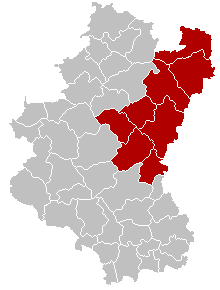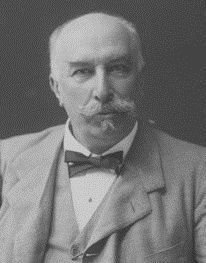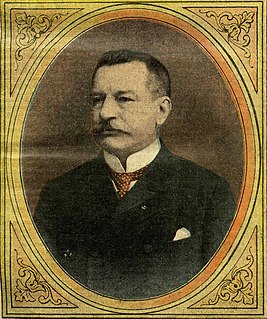| ||
75 of the 152 seats in the Chamber of Representatives | ||

Partial legislative elections were held in Belgium on 22 May 1898, with run-off elections held on 29 May. [1] Under the alternating system, elections for the Chamber of Representatives were held in only four out of the nine provinces: Hainaut, Limburg, Liège and East Flanders. Thus, only 75 seats out of the 152 seats in the Chamber of Representatives were up for election. The Catholic Party retained their absolute majority. [2]

Belgium, officially the Kingdom of Belgium, is a country in Western Europe. It is bordered by the Netherlands to the north, Germany to the east, Luxembourg to the southeast, France to the southwest, and the North Sea to the northwest. It covers an area of 30,688 square kilometres (11,849 sq mi) and has a population of more than 11.4 million. The capital and largest city is Brussels; other major cities are Antwerp, Ghent, Charleroi and Liège.

The Chamber of Representatives is one of the two chambers in the bicameral Federal Parliament of Belgium, the other being the Senate. It is considered to be the "lower house" of the Federal Parliament.
Contents
Notably, Adolf Daens, who was elected in 1894 for Aalst and served one term, was convinced not to run for re-election. His fight for a social Christian Democratic party was opposed by conservative Catholics, especially fellow Aalst MP Charles Woeste. None of the other "Daensists" (Christene Volkspartij) who ran were elected.

Adolf Daens was a Flemish priest from Aalst. Daens was a Jesuit from 1859 to 1871 but is especially known for his socio-political involvement after he joined the diocesan clergy. He created the Daensist movement from which originated in 1893 the Christene Volkspartij inspired by Leo XIII's encyclical Rerum novarum. The Christene Volkspartij forced the radicalisation and democratisation of the Catholic party.
Charles, Count Woeste, was a Belgian Roman Catholic politician of German descent.
A special election in Bastogne was held on 24 July 1898. Henry Delvaux de Fenffe (d) was elected to replace Emile Van Hoorde (d), who became provincial senator.

The Arrondissement of Bastogne is one of the five administrative arrondissements in the Province of Luxembourg, Belgium. It is not a judicial arrondissement. Three of its municipalities, Gouvy, Houffalize and Vielsalm, are part of the Judicial Arrondissement of Marche-en-Famenne, while the rest of its municipalities are part of the Judicial Arrondissement of Neufchâteau.

Henry Charles Marie Adolphe Delvaux de Fenffe was Belgian nobleman and high-ranking civil servant.
They were the last regular legislative elections under a majority system; the next elections in 1900 saw the introduction of a proportional system.
The newly elected legislature met in regular session on 8 November 1898.















